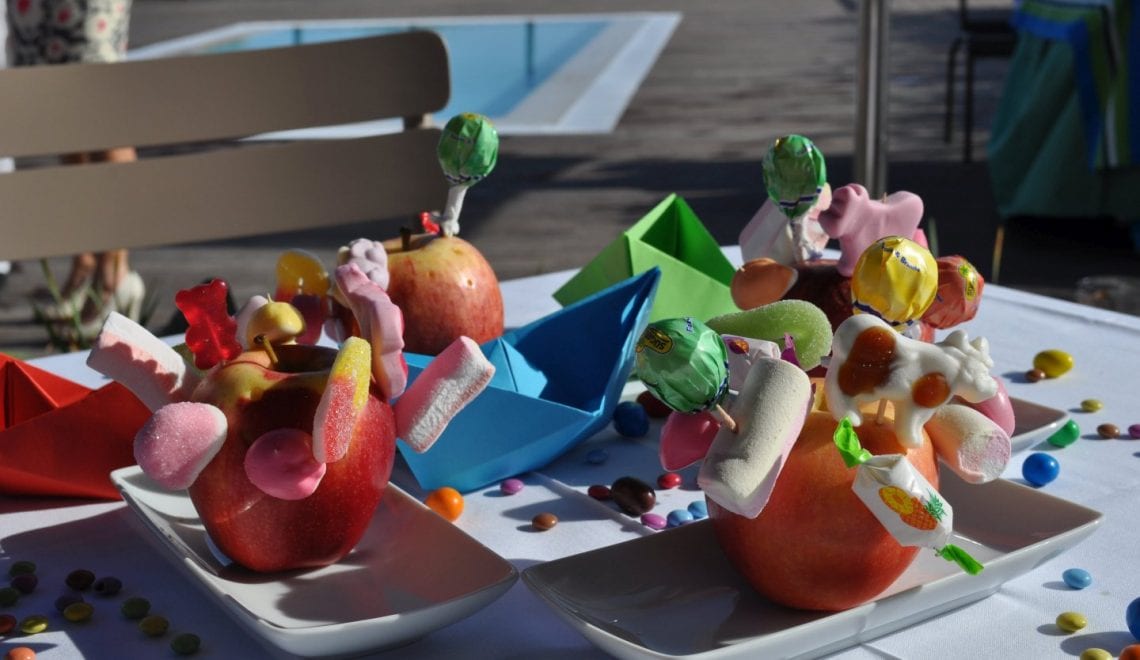Helping Your Child Understand Sugar

There is no denying it, the average household more than likely offers “too much” sugar to each family member. Sometimes it may be because the parents are unaware of the high levels of sugar in certain foods or perhaps your child is a notoriously picky eater and tends to eat the foods that have a higher sugar content. You would rather they eat something rather than nothing, right?
The World Health Organisation (WHO) suggests that we (adults) should have a maximum intake of 25g of sugar per day. That equates to six teaspoons of sugar. You might see that figure and consider the fact that you don’t add sugar to tea or coffee. Heck, you don’t even add it to breakfast cereal. Turns out your sugar intake is not half as bad as you thought. I had similar thoughts until I began to research what this actually translates to in my day to day life. I was in the midst of shining my halo when I started to notice the high levels of sugar in everyday items such as tomato ketchup, yoghurt and cereals which I would not consider to be sweet tasting at all. It was a huge eye opener.
I then started to consider how this may affect my son. The recommendation is that children aged 1-4 should have no more than 16g of sugar which is about 3-4 teaspoons.
So how can we limit the sugar that our children eat without giving them a complex about food? I believe that food is there to be enjoyed. I see it as a joy in life rather than just a sustainable thing. I also feel quite passionate about good food and a healthy balanced diet. For me a healthy balanced diet includes treats. As a parent I want to lead by example and I do enjoy a small treat with a cup of tea in the evenings, or a bit of a splurge at the weekend. As a general rule I am eating lots of fresh fruit, vegetables and foods that contain a lot of nutrients.
 Children are born with a natural “taste” for sweet food. That is why a lot of healthcare professionals will recommend giving your baby vegetables as their first taste of food when weaning them on to solid foods. It is almost guaranteed that they will enjoy the fruit purées so it is best to keep those until they have tasted some vegetable flavours first.
Children are born with a natural “taste” for sweet food. That is why a lot of healthcare professionals will recommend giving your baby vegetables as their first taste of food when weaning them on to solid foods. It is almost guaranteed that they will enjoy the fruit purées so it is best to keep those until they have tasted some vegetable flavours first.
There will always be party bags at birthday parties and desserts on the menu at a restaurant. Your child will always notice another child with an ice-cream cone. Big social occasions and celebrations normally go hand in hand with sweet foods on offer. It is a battle we will constantly be up against as our children grow and develop.
Here are some tips that may help you teach your child about sugar while at the same time allowing them to enjoy treats. Wouldn’t it be nice to find a healthy balance?
– Practice what you preach. Our children learn everything by watching what others do. If you are lacing your cereal with sugar and drowning your dinner with ketchup they will absolutely want to do the same.
– Make baking a little tradition within the family. Even if it is only once a month it could be a powerful visual aid in helping your child understand how much sugar goes in to foods. It may also be an opportunity to show how alternatives can be used such as using banana instead of actual sugar.
– Creating an understanding of treats as something we have when we have eaten healthier foods. If biscuits are just given as a distraction or while out and about they will become very normal to your child and will be expected at all times. Having it as a “treat” (even if it is daily) will encourage them to enjoy it more and appreciate the idea of it being “surplus” as opposed to a given.
– Shop around and try to fill your cupboards with brands that include less sugar. All of these efforts will contribute to reducing your child’s sugar intake on a daily basis.
– When it comes to birthday parties that include “party bags” perhaps allow them to chose one item each day from the bag rather than eating an enormous amount of sugar in one sitting. They may even forget about it after a couple of days.
Sometimes the best approach is to explain to your child why we should and should not do certain things. If we simply say no the result may be a melt-down and there will be no real understanding of the “lesson”. Every family is different but in our house treats are very much acceptable provided they are not replacing a healthy balanced diet and provided they are just that – a treat.






